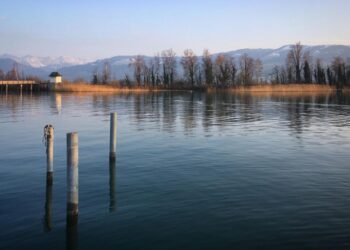Farming in ancient Greece posed numerous challenges due to a combination of geographical, environmental, social, and economic factors. The mountainous terrain limited available arable land and complicated irrigation efforts. Coastal regions presented their own obstacles, such as rocky coastlines and saline soil. The climate brought seasonal variations and unpredictable weather patterns, adding further complexity. Technological limitations, including a lack of advanced tools and farming techniques, hindered agricultural productivity. Additionally, societal factors, such as the focus on other occupations and reliance on slave labor, impacted farming practices. This article delves into the difficulties faced by ancient Greek farmers and their enduring impact.
Why Was Farming Difficult In Ancient Greece?
Farming in ancient Greece was challenging due to the mountainous terrain, limited arable land, and difficulties in irrigation. The coastal regions had rocky coastlines and saline soil. The climate brought seasonal variations and unpredictable weather patterns. Technological limitations, societal factors, and economic challenges further compounded the difficulties faced by ancient Greek farmers.
Overview Of Ancient Greece And Its Agricultural Practices
Ancient Greece, known for its rich cultural and intellectual contributions, also had a significant agricultural sector that played a vital role in sustaining its population. The agricultural practices of ancient Greece were closely tied to its geographical and environmental conditions.
Ancient Greece was characterized by a diverse landscape, with mountainous regions, coastal areas, and fertile valleys. The mountainous terrain posed a significant challenge for farming, as it limited available arable land. The valleys, on the other hand, provided more suitable conditions for agriculture, enabling the cultivation of crops.
The primary crops cultivated in ancient Greece included wheat, barley, grapes, olives, and figs. Wheat and barley were staple grains, forming the foundation of the Greek diet. Olive trees were cultivated for olive oil production, while vineyards were established for wine production. Farmers employed various farming techniques, such as plowing, sowing, and harvesting, mostly using simple hand tools like the plow and sickle.
Due to the arid climate and limited rainfall in some regions, irrigation played a crucial role in ancient Greek agriculture. Farmers relied on various methods to ensure water supply for their crops. This included diverting water from rivers and streams through canals and constructing terraces on hillsides to prevent erosion and retain moisture in the soil.
The agricultural activities in ancient Greece were closely aligned with the changing seasons. Farmers followed an agricultural calendar that guided them in sowing, tending to crops, and harvesting at the appropriate times. Festivals, such as the Thesmophoria and Anthesteria, were also celebrated to honor the agricultural deities and offer prayers for a fruitful harvest.
Geographical Factors
Geographical factors significantly influenced agricultural practices in ancient Greece. The unique topography of the region posed several challenges for farmers.
- Mountainous Terrain: Ancient Greece was characterized by rugged and mountainous landscapes, particularly in regions such as Attica, Thessaly, and the Peloponnese. These mountain ranges, including the Pindus Mountains and Mount Olympus, restricted the amount of available arable land. Farmers had to contend with steep slopes, rocky soil, and limited flat areas for cultivation.
- Limited Arable Land: The scarcity of arable land was a persistent obstacle for ancient Greek farmers. With much of the land being mountainous or unsuitable for cultivation, farmers had to carefully utilize the fertile valleys and plains available to them. Competition for arable land was fierce, which often led to territorial disputes and conflicts among different city-states.
- Coastal Regions: Greece’s extensive coastline presented its own challenges for agricultural practices. The rocky coastlines limited the amount of cultivable land near the sea. Additionally, the proximity to saltwater posed issues for agriculture, as the saline content of the soil made it less fertile and hindered crop growth.
- Water Management: The mountainous terrain also posed challenges for water management and irrigation. The steep slopes made it difficult to implement efficient irrigation systems. Furthermore, the limited availability of freshwater sources, such as rivers and lakes, in certain regions required farmers to develop innovative techniques to collect and distribute water for agricultural purposes.
- Regional Variations: It is important to note that Greece’s geographical factors were not uniform throughout the entire region. Different city-states had their own unique landscapes and natural resources, leading to variations in agricultural practices. For example, regions like Thessaly had fertile plains suitable for large-scale agriculture, while areas like Crete had a more diverse landscape with terraced hillsides and extensive olive groves.
Environmental Factors
Environmental factors played a crucial role in shaping the agricultural practices of ancient Greece. The natural environment posed both advantages and challenges for farmers in their pursuit of successful cultivation.
- Soil Quality and Fertility: The quality of soil varied across different regions of ancient Greece. While some areas had fertile soil, others suffered from nutrient deficiencies or poor drainage. Farmers had to employ various techniques to enhance soil fertility, such as adding organic matter or animal manure to improve nutrient levels. Soil erosion was also a concern, as steep slopes and heavy rainfall could lead to the loss of topsoil and reduced productivity.
- Pest and Disease Prevalence: Ancient Greek farmers had to contend with a range of pests and diseases that posed a threat to their crops. Insects, rodents, and plant diseases could damage or destroy agricultural yields. While some basic pest control methods were employed, such as manual removal or the use of natural repellents, ancient Greek farmers lacked the advanced knowledge and resources available today to combat these issues effectively.
- Climate and Seasonal Variations: The Mediterranean climate of ancient Greece consisted of hot, dry summers and mild, wet winters. These seasonal variations significantly influenced agricultural practices. Farmers had to carefully select crops that could thrive in the specific climate conditions and adjust their planting and harvesting schedules accordingly. Unpredictable weather patterns, such as droughts or heavy rains, could also lead to crop failures and impact overall agricultural productivity.
- Water Availability: Adequate water supply was essential for successful agriculture. In regions with limited rainfall or unreliable water sources, farmers had to develop innovative water management systems to ensure irrigation for their crops. They constructed channels, cisterns, and wells to collect and store water, and devised methods to distribute it effectively across their fields.
- Natural Landscapes: The natural landscapes of ancient Greece, including forests, rivers, and meadows, provided resources and opportunities for farming. Forests provided timber for construction and fuel, while meadows offered grazing land for livestock. Rivers and streams served as water sources and allowed for the development of irrigation systems.
Economic Challenges
Economic challenges were significant factors that affected farming in ancient Greece. The agricultural sector played a central role in the economy, but several factors posed obstacles to its development and prosperity.
- Barriers to Trade: Ancient Greece consisted of numerous independent city-states, each with its own economic policies and trade restrictions. These barriers to trade, including tariffs and regulations, limited access to foreign markets and hindered the exchange of agricultural goods. Farmers faced challenges in exporting their surplus produce or accessing necessary resources and technology from other regions.
- Disruptions in Trade Routes: The stability of trade routes was essential for the economic growth of ancient Greece. However, conflicts, wars, or piracy could disrupt trade routes both within Greece and with other Mediterranean civilizations. These disruptions affected the flow of agricultural goods, making it difficult for farmers to engage in long-distance trade and hindering the development of a more diversified agricultural economy.
- Dependency on Agriculture: Ancient Greece had an economy heavily reliant on agriculture. With limited industrial or commercial sectors, agriculture formed the backbone of the economy and was a primary source of livelihood for the majority of the population. This heavy dependence on agriculture made the economy vulnerable to fluctuations in crop yields, crop failures, or other agricultural challenges, leading to potential economic instability.
- Lack of Diversification: The dominance of agriculture in the ancient Greek economy resulted in a lack of economic diversification. With limited industrial or manufacturing sectors, opportunities for farmers to engage in alternative economic activities were limited. This lack of diversification made the economy more vulnerable to shocks and reduced the overall resilience of the agricultural sector.
- Vulnerability to Crop Failures: Crop failures due to adverse weather conditions, pests, diseases, or other factors had severe economic consequences for ancient Greek farmers. Crop failures meant a reduction in agricultural output, leading to food scarcity, higher prices, and potential economic hardships for both farmers and the broader population. The lack of advanced agricultural techniques or technologies further increased the vulnerability to crop failures.
Conclusion
In conclusion, farming in ancient Greece was a difficult endeavor due to a combination of geographical, environmental, social, and economic factors. The mountainous terrain, limited arable land, coastal challenges, and water management issues posed significant hurdles for farmers. Environmental factors like soil quality, pests, diseases, and seasonal variations further impacted agricultural productivity. Socioeconomic factors such as trade barriers, economic dependency on agriculture, and limited diversification added to the challenges. Despite these difficulties, ancient Greek farmers demonstrated resilience and resourcefulness, contributing to the agricultural foundations that shaped the civilization’s economic and cultural legacy.
FAQ’s
Were All Regions In Ancient Greece Equally Affected By The Challenges Of Farming?
No, different regions in ancient Greece had varying geographical and environmental conditions that influenced agricultural practices. Some regions had more fertile plains or access to water sources, while others were more mountainous and faced greater limitations for farming.
How Did Ancient Greek Farmers Cope With Limited Arable Land?
Ancient Greek farmers maximized the available arable land by employing terracing techniques on hillsides, utilizing fertile valleys and plains, and practicing crop rotation to optimize soil fertility. They also employed intensive cultivation methods and utilized every inch of land possible.
Did Ancient Greek Farmers Have Any Solutions For Pest And Disease Control?
Ancient Greek farmers used various methods for pest and disease control, although their options were limited compared to modern techniques. They employed manual removal of pests, natural repellents such as certain plant extracts, and sometimes used smoke or fumigation to deter pests. However, they lacked advanced knowledge of pesticides and relied on basic preventive measures.
Did Ancient Greek Farmers Use Any Advanced Irrigation Systems?
Ancient Greek farmers faced challenges in implementing advanced irrigation systems due to the mountainous terrain and limited water sources. However, they developed techniques such as diverting water from rivers and streams through canals, constructing cisterns to collect rainwater, and employing terracing to retain moisture in the soil.
How Did Economic Challenges Impact Ancient Greek Farmers?
Economic challenges, such as trade barriers and disruptions in trade routes, limited the ability of ancient Greek farmers to access foreign markets or obtain necessary resources. Dependency on agriculture for livelihood and the lack of economic diversification made farmers vulnerable to fluctuations in crop yields and economic instability. Crop failures could lead to food scarcity and hardships for both farmers and the broader population.







